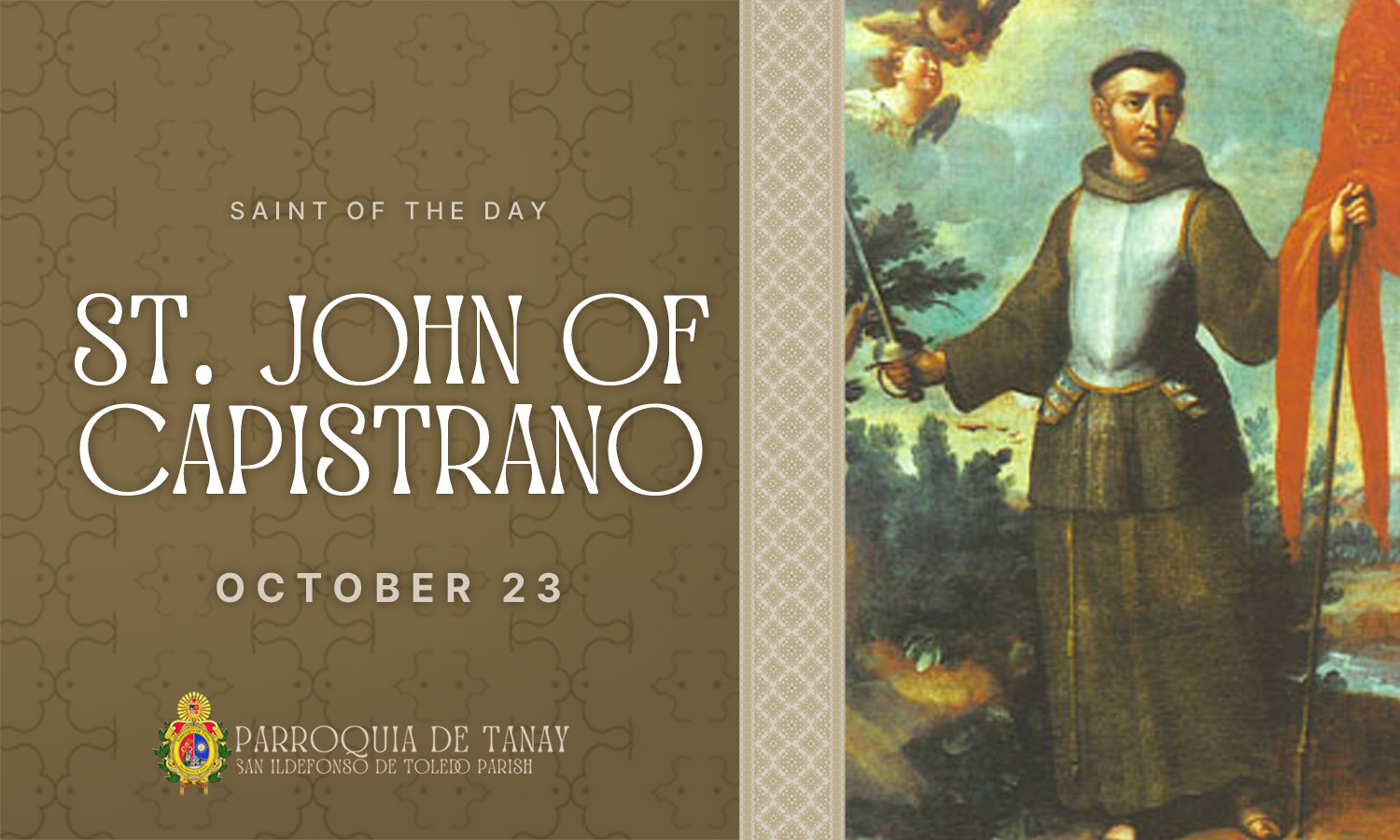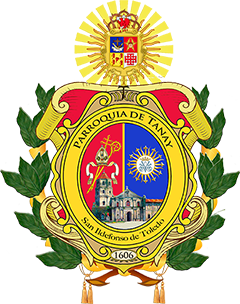Saint of the Day: St. John of Capistrano | October 23
By SIDTP SoCom
Published on October 23, 2024
St. John of Capistrano, born on June 24, 1386, in Capistrano, Italy, was a Franciscan friar and a renowned preacher known for his fervent dedication to the Church and his commitment to social justice. After studying law and serving as a governor in his youth, John experienced a profound spiritual transformation and decided to join the Franciscan order around 1416.
As a Franciscan, John became a passionate advocate for reform within the Church and was deeply committed to the ideals of poverty, humility, and service. He traveled extensively across Europe, preaching to large crowds and emphasizing the need for repentance and renewal. His preaching style was characterized by a fiery zeal, and he often addressed pressing social issues of his time, including the need for peace and reconciliation amidst conflict.
John of Capistrano is perhaps best known for his role during the 1456 siege of Belgrade, where he rallied Christian forces against the Ottoman Empire. His leadership and spiritual guidance were instrumental in inspiring the defenders, ultimately leading to a decisive victory that halted the advance of the Ottomans into Europe. This event solidified his reputation as a defender of the faith and a champion of Christian unity.
Throughout his life, John was also involved in various reform movements within the Franciscan order, advocating for a return to the original ideals of St. Francis of Assisi. His commitment to education and the welfare of the poor made him a respected figure in his community.
John of Capistrano died on October 23, 1456, shortly after the victory at Belgrade, and was canonized by Pope Benedict XIII in 1724. His feast day is celebrated on October 23. He is often depicted holding a cross or a banner, symbolizing his role as a soldier of Christ and a defender of the faith.
St. John of Capistrano’s legacy continues to inspire Christians to engage in social justice and to live out their faith through acts of compassion and service. His dedication to preaching and reform remains a powerful example of the transformative power of faith.
Sources:
1. McGuckin, John Anthony. “Saints and Sinners: A History of the Popes.” 2011.
2. Duffy, Eamon. “Saints and Sinners: A History of the Popes.” 1997.



